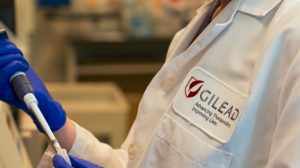As pharmaceutical companies scrambled to push their COVID-19 treatments toward Phase III trials, many spent more on first-quarter lobbying than ever before. The nonprofit Center for Responsive Politics, who compiles lobbying and campaign finance data, noted that Gilead, AbbVie and Regeneron were among those who dramatically increased their Q1’20 lobby spending.
Gilead Sciences, who announced the results of their Phase III trial of antiviral remdesivir in late April, reportedly spent $2.45 million in the first three months of 2020 on lobbying alone. This was a 32% increase over their lobbying expenditures for Q1’19. The first three months of the year also coincided with Congress’s Coronavirus Aid, Relief, and Economic Security Act, which included strategies and regulations for how pharmaceutical companies could proceed with vaccine development and funding.
While the legislation initially ensured tests and treatments would remain affordable to the public, later drafts omitted such securities. The massive increase in lobbying also preceded the Food and Drug Administration’s approval of remdesivir for emergency use in patients with severe COVID-19 respiratory symptoms.
Gilead has pledged to donate 1.5 million doses of remdesivir, but this hasn’t slowed skepticism from some patient advocate groups. Having been accused of price gouging in the past for their $1,000 per pill hepatitis C treatment, Gilead has a history of inflating the costs of their products. They are currently still battling the federal government over rights to their FDA-approved HIV treatment, Truvada. While largely effective, its $2,000 per month price tag renders it prohibitively expensive for a large percentage of HIV patients in the US. Truvada only costs between $8-$75 a month in most other countries.
Gilead’s recent lobby spending may also hit a nerve with watchdog groups who remember former Gilead Sciences lobbyist Joe Grogan, who fiercely lobbied on Capitol Hill to halt price negotiations, claiming that they would only succeed at “put[ting] companies out of business.” Grogan left lobbying to assist President Trump as the Director of the United States Domestic Policy Council, and was appointed a member of the White House Coronavirus Task Force in January of this year. Grogan announced his resignation on April 29.
Gilead ascribes the sharp increase in lobby spending this year to recently joining PhRMA, the Pharmaceutical Research and Manufacturing Association, a trade group wielding heavy influence in favor of protecting the pharmaceutical industry’s interests. While a Gilead spokesman claimed that over $500,000 of the first quarter spending went towards PhRMA dues, PhRMA declined to comment.























